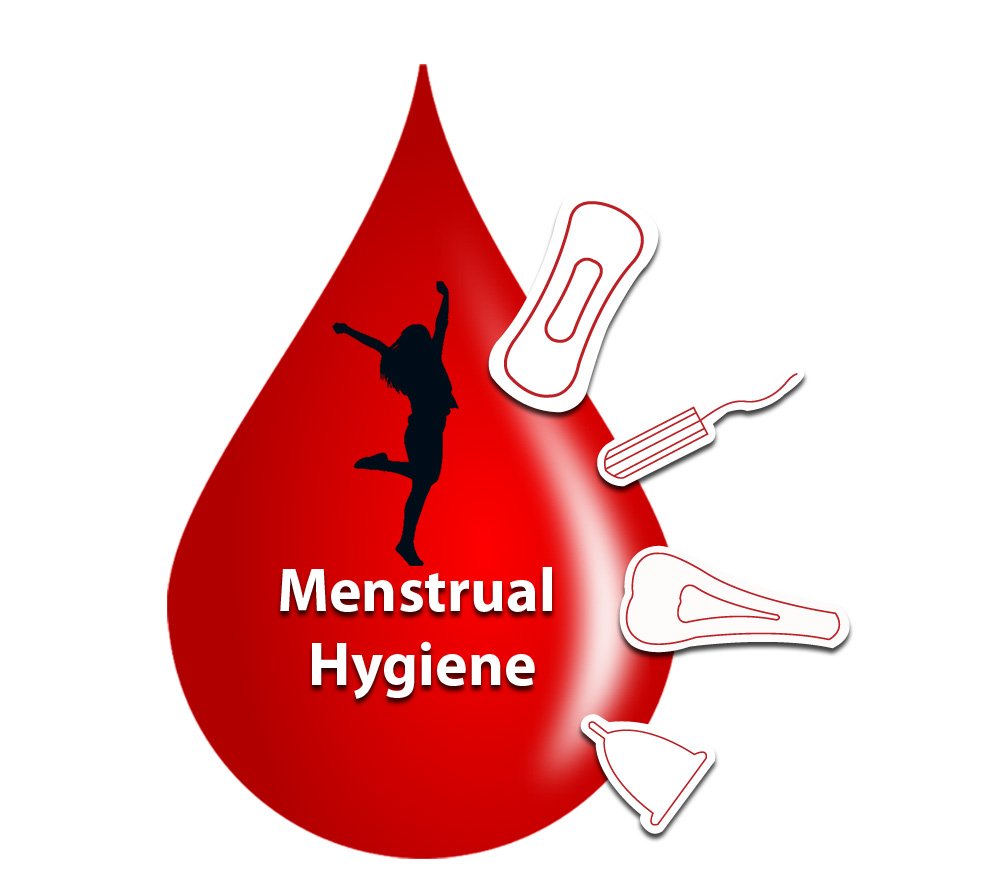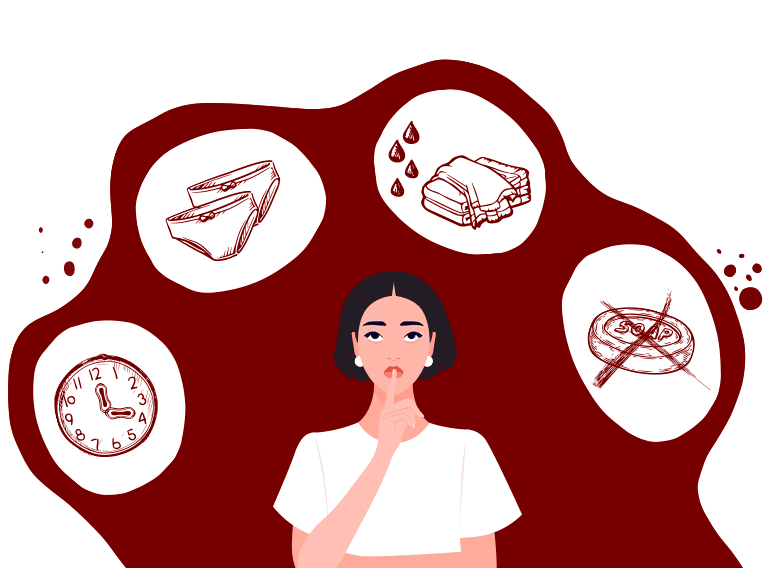Maintaining proper menstrual hygiene might be difficult for some ladies, but it might even be easier for other people to pull off. There are still some burning concerns and questions that most people do find puzzling and this, in turn, makes them practice wrong hygiene during their monthly flow.
Do you know that about 1.8 billion women and young girls menstruate each month across the globe? Millions of these girls, women, transgender men, and non-binary people are unable to control their menstrual cycle in a respectable manner that promotes good health [1]
We’re here to address all of your burning concerns about maintaining good hygiene while having your period, including why you should wash your genitalia, use pads, control smells, and much more.
The monthly removal of a woman’s uterine lining is known as menstruation, also known by the names menstrual period, cycle, or period (more commonly known as the womb).
The monthly blood leaves the uterus through the cervix and exits the body through the vagina. Menstrual blood is a mixture of blood and tissue from the interior of the uterus.

10 questions about menstruation
Question One
When should you use sanitary products, and for how long?
Because you are more active throughout the day, your menstrual flow will be thicker, which causes the pad to absorb more blood, sweat, and oil. You shouldn’t use one pad for longer than four hours since doing so produces a breeding environment for germs.
You may use a pad comfortably overnight since at night while you are sleeping, your body functions slow down and the severity of the bleeding diminishes. Tampons should not, however, be worn for more than eight hours. They put you at risk for toxic shock syndrome, a serious illness.
Question Two
What to do when changing to a new sanitary product.
Wash your hands immediately after changing a sanitary product to help prevent the spread of any bacteria from the hygiene product to your body through your hands.
Some feminine hygiene items come into touch with the anal region. As a result, gut bacteria may infect them. This could be extremely hazardous and lead to ailments.
Check out how to Prepare for your Monthly Flow
Question Three
To maintain perfect hygiene throughout your menstrual periods, should you wash your genitals frequently?
Yes! Health care professionals advise cleaning the genital area with clean water at least twice a day, morning and evening, when you are on your period since blood can provide a favorable environment for germs to develop. If you feel uncomfortable, it is suggested that you do this more frequently.
Question Four
How should I wash around my genitalia?
From the front to the back, cleanse the genitalia. Lavatory cleaning should be done first, followed by the anus and the perineum. Infection-causing bacteria and remnants of feces will be less likely to penetrate the vaginal region as a result of this.
Question Five
When on your period, should you take a bath?
Definitely! It is safe for menstruating women to take a bath. In most cases, flowing water would Be ok. But before soaking in the tub, it’s important to speak with a doctor if you are experiencing any issues with your reproductive health. For the safest pleasure, take the following precautions if you decide to take a bath while on your period:
Because your immune system is weaker during your period, make sure the tub is clean.
Use warm, not hot, water. Heavy bleeding may result from using hot water.
Prior to soaking in the tub, wash your genitalia (for example, rinse off under the shower).

Question 6
How may a feminine hygiene deodorant be used to control odors?
Because it can foster the growth of infections, it is best to avoid any contact between the vulva and any chemicals included in sanitary products, including feminine hygiene deodorants. Wet wipes or rinsing your genital region with water are both alternatives.
Vaginitis can be brought on by feminine hygiene deodorants and sprays (its symptoms include itching, redness, and abnormally heavy vaginal discharge).
Question 7
Which wipes may be used without risk when having a period?
The most secure wipes to use are alcohol-free ones. Wet wipes are a more delicate and softer alternative to toilet paper.
As these components might irritate your skin and mucous membranes, you should select products that are devoid of alcohol and scent and have a regulated pH level.
Question 8
How should I get rid of used sanitary products?
Rolling up a used pad and covering it with toilet paper or the wrapper of a new pad can help to eliminate any odor and stop the spread of bacteria, which can accumulate over time. It serves its purpose as just wrapping tampons in toilet paper.
Question 9
Do Used Sanitary Products Need to Be Flushed Down the Toilets?
You can take the used pad (or tampon) with you and toss it away someplace else if you find yourself in a restroom without a trash can. Easily block a pipe or sewer by flushing even the smallest hygiene item.
Question 10
Why do gynecologists advise washing with water before and after periods?
An organ that cleans itself, is the vagina – which maintains a balance between beneficial and harmful germs. The natural flora of the area must be preserved, thus using a bar of conventional soap or even specialized cosmetic products for intimate hygiene might cause disruption. The genital area should be cleaned with warm water and no soap, according to healthcare professionals.
Many thanks for reading!






